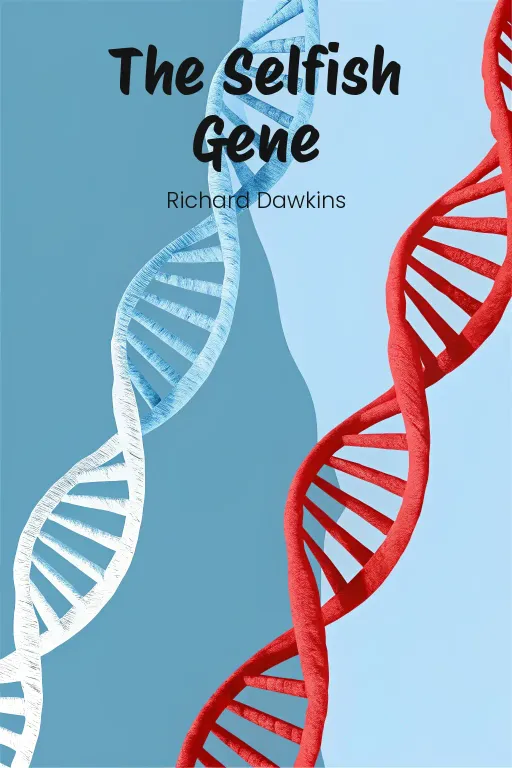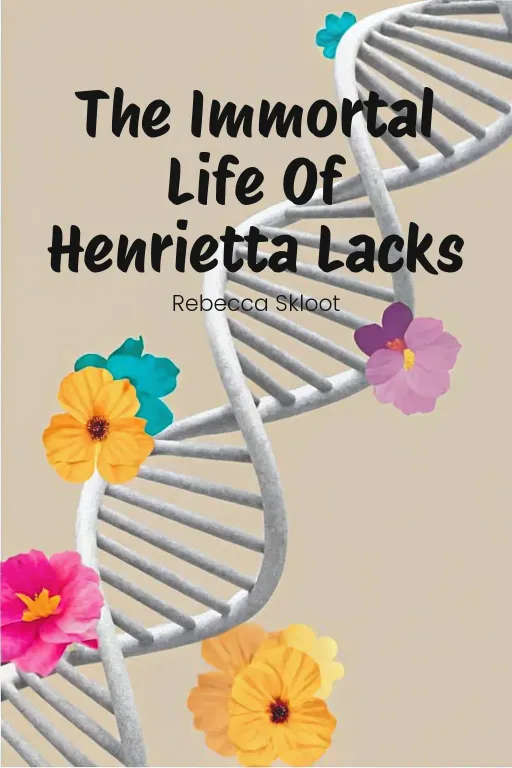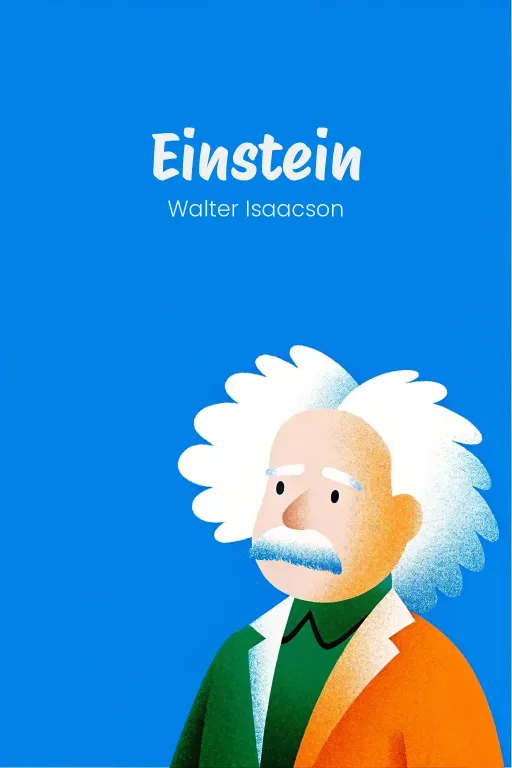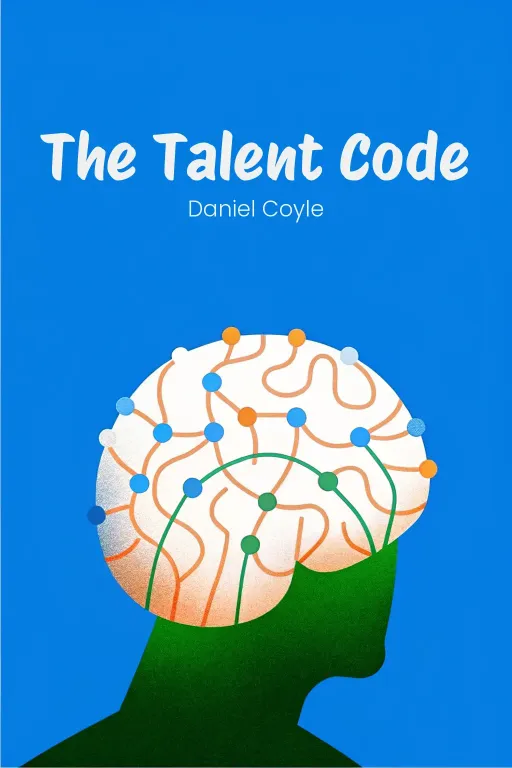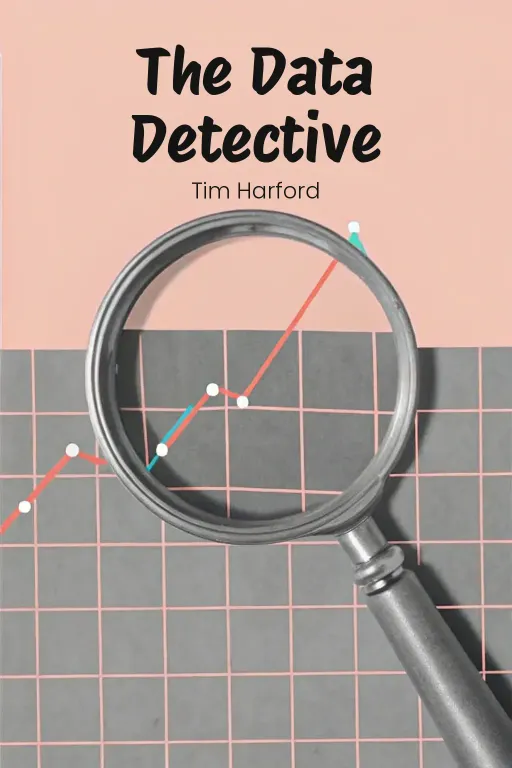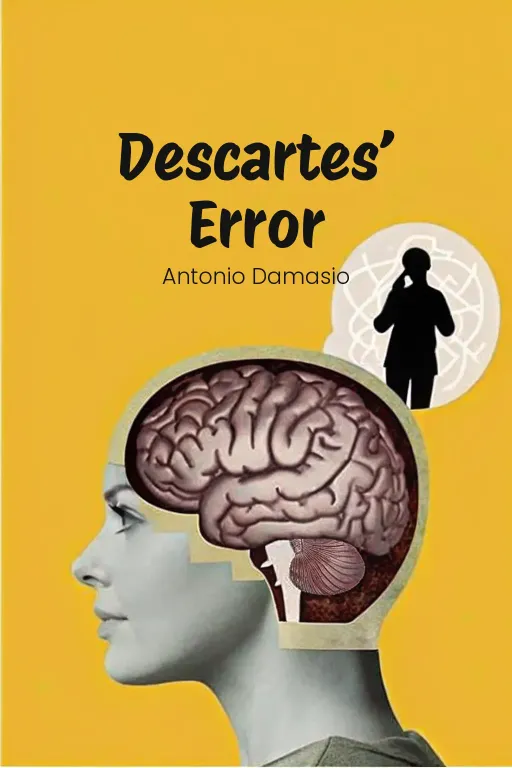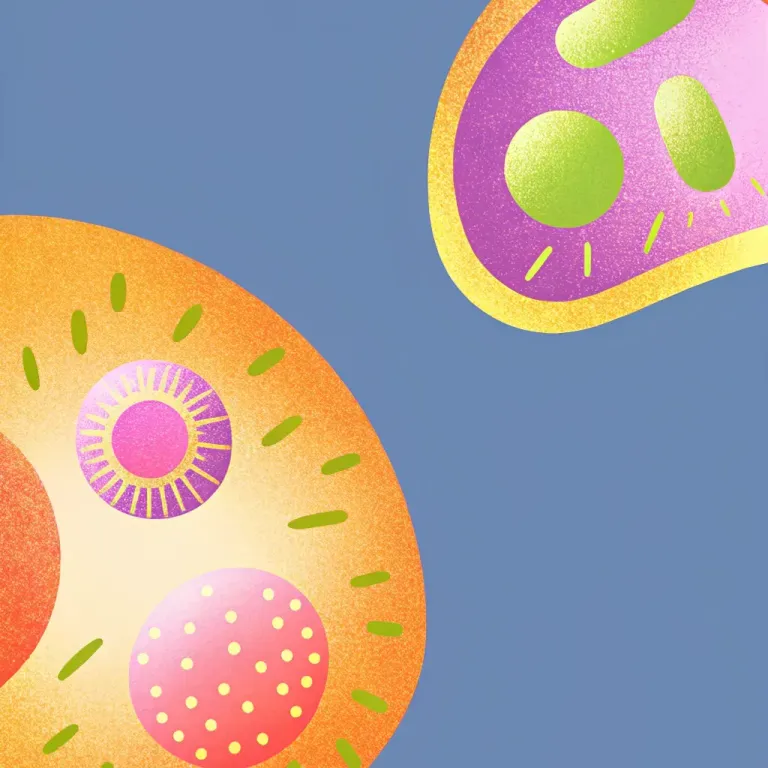
HeLa: When Science Erases Humanity
Podcast by Wired In with Josh and Drew
How one woman's cells changed scientific thinking forever.
HeLa: When Science Erases Humanity
Part 1
Josh: Hello everyone, and welcome! Today, we're diving into a story that not only revolutionized science but also exposed some pretty deep flaws within the medical field. It's a narrative of incredible advancements mixed with some really troubling injustices—all focusing on one remarkable woman, Henrietta Lacks. Drew: Yeah, a woman whose cells, unbelievably, contributed more to science than most research labs ever could. And yet, for decades, her name was practically unknown. If that doesn’t sit right with you, well, you're definitely not alone. Josh: Exactly! Henrietta Lacks was a low-income African American mother of five. Back in 1951, doctors took her cervical cancer cells without her knowing. These cells, which we now know as HeLa cells, turned out to be the first human cells to not just survive, but actually multiply outside the human body. And they didn't just survive; they flourished. HeLa cells were essential in developing the polio vaccine, they led to breakthroughs in cancer treatments, and continue to be crucial for scientific research today. Drew: Which is incredible, without question. But then you find out nobody asked for her permission. Her cells became essential to modern medicine, while her family found out about it decades later, by a reporter. Really makes you rethink what "informed consent" actually means, doesn't it? Josh: Absolutely, and that's exactly what we're here to explore. In today's episode, we're going to unpack three closely related aspects of Henrietta's story. First, we'll look at the amazing scientific advancements that her immortal cells made possible. Second, we'll delve into the ethical dilemmas – how taking her cells without her consent raised critical questions about medical ethics. And finally, we’ll discuss the fight for dignity and recognition that her family has been leading, even decades after her death. Drew: So, breakthroughs, injustice, and a fight for what’s right. Sounds like a pretty intense intersection, and, you know, maybe that’s precisely where medicine and humanity actually meet.
Henrietta Lacks and the Discovery of HeLa Cells
Part 2
Josh: So, let’s dive into the story of Henrietta Lacks, shall we? Because before we even talk about HeLa cells, we really need to understand the woman herself. Henrietta was a young African American woman living in rural Virginia. She was raising five children and working on a tobacco farm when she started experiencing this really severe pelvic pain. At only 29 years old, she went to Johns Hopkins Hospital for help, which was pretty much the only place in her area that would treat Black patients back then, during segregation. And that’s where doctors discovered this tumor on her cervix—they described it as “pearly gray.” Drew: Right, so that's how her journey into medical history began, completely unbeknownst to her, of course. You know, Johns Hopkins sounds like this reputable institution, but let’s not forget—back in 1951, the concepts of respect and consent weren't exactly universally applied, especially when race was a factor. Josh: Absolutely. And here’s the painful truth. During her treatment, doctors at Hopkins took a small sample of tissue from her tumor, without even telling her. Back then, it was pretty common practice – especially for patients who were marginalized – to just skip the consent part when taking samples for research. Henrietta thought she was just there to get treatment, not to become part of some medical experiment. Drew: And it wasn't just any old tissue sample, was it? These cells turned out to be extraordinary, unlike anything researchers had ever encountered. That’s where Dr. George Gey, who was studying cancer cells at Hopkins, comes into the picture. For years, scientists had been struggling to grow human cells in the lab. They either wouldn’t grow at all, or they’d just die off really quickly. Josh: Exactly! But Henrietta’s cells, they didn’t just survive – they thrived! They doubled in number, like, every 20 to 24 hours, and they seemed “immortal,” which means they could keep dividing indefinitely in a petri dish. This was huge because it finally gave scientists a reliable way to test ideas, experiment with drugs, and you know, really study diseases. Drew: Okay, hold on a second! Immortal? That makes her cells sound like something out of a comic book, a superhero maybe—or a supervillain, depending on your perspective. But what does that word actually mean in scientific terms? Josh: That’s a great question. Normally, human cells have a limit to how many times they can divide. It’s called the “Hayflick limit.” It's sort of like a built-in biological countdown clock. The cells eventually stop dividing and just… die. But Henrietta’s cancer cells, they bypassed that limit because of some specific genetic mutations in her tumor. Which, under lab conditions, made them effectively immortal. This was such a game-changer for science because, for the first time, researchers had a constant, renewable resource to work with. Drew: So basically, instead of needing a fresh sample of cells for every single experiment, they could just keep using Henrietta’s HeLa cells forever. And they didn’t waste any time putting them to work, did they? I mean, didn’t HeLa cells basically save the world from polio? That’s kind of a big deal. Josh: Absolutely! Back in 1954, Jonas Salk used HeLa cells to develop his polio vaccine. Before HeLa cells, it was incredibly difficult to cultivate the poliovirus for vaccine research. HeLa gave them a reliable way to grow the virus, test the vaccine, and pave the way for essentially, one of the biggest public health wins of the 20th century. Drew: Her cells didn’t just shake up science, they totally revolutionized it. Polio wasn’t just a minor setback; it was a global crisis. Henrietta’s contribution—unintentional as it was—saved millions of lives. Josh: And it didn't stop there, Drew. HeLa cells were used in cancer research, they helped with gene mapping, and they were even sent into space to study how zero gravity affects human biology. They’ve been key to breakthroughs in leukemia treatments, IVF, and so much more. But here's the really troubling part: while her cells were making all of this progress possible, neither Henrietta nor her family ever, ever benefited from it. Drew: And let’s not forget the fact that her family didn't even know her cells were being used, let alone that they were making companies millions of dollars. Can we talk about the ethics of all this? Because for all the credit we give science, this story really shines a big, glaring light on just how messy things can get when human rights end up taking a backseat to progress. Josh: It's definitely a case study in medical ethics, or really, the lack thereof. Henrietta was never told that her cells had been taken, and back then, there just weren't any laws requiring consent for tissue research. But the heart of the issue is this systemic inequality. As a poor Black woman in the Jim Crow era, Henrietta wasn't in a position to question doctors or really demand transparency. And this wasn’t an isolated case. African Americans were routinely exploited in the name of medical research, like we saw in the absolutely horrifying Tuskegee Syphilis Study, where Black men were denied treatment for syphilis for decades just to see how the disease would progress. Drew: Yeah, and the blatant double standard is just disgusting. If someone tried to pull that kind of stunt today, it would be front-page news, lawsuits for years. But here's the kicker, even after Henrietta’s family found out about the HeLa cells in the 1970s, they still weren’t consulted when scientists published her genome in 2013. It’s like, how much salt can you rub into a wound, “really”? Josh: I know, it absolutely does. In 2013, a team of geneticists sequenced the entire HeLa genome and published it without asking Henrietta’s family for their consent. I mean, the genome contains incredibly personal information—about diseases, traits, and our genetic heritage. When Henrietta’s descendants found out, they were, understandably, outraged. They eventually worked out an agreement with the National Institutes of Health to kind of control access to that data. But it was still another example of how her family was just completely sidelined, even decades after Henrietta’s death. Drew: So, if I’m understanding this correctly, Henrietta’s cells revolutionize science, but her family isn’t told for decades. And then, when they finally do find out what’s going on, their privacy is still violated soon after. It’s like getting a gift that no one actually asked for, but everyone just keeps taking. Josh: Exactly. And that’s why Henrietta’s story is often viewed as a cautionary tale. It forces us to ask these really tough questions, like: Who owns your cells once they leave your body? Should families receive financial compensation if donated tissue leads to these billion-dollar discoveries? And how do we balance the undeniable value of medical progress with the rights and just the basic dignity of the people who make it possible? Drew: These are huge questions, and definitely no easy answers in sight. But one thing is crystal clear—Henrietta’s cells gave the world so much, and it’s about time we gave something back. Not just to honor her memory, but to actually support her family.
Ethical and Racial Implications of HeLa Cells
Part 3
Josh: This discovery really makes you think about the ethics of medical research, doesn't it? I mean, after discussing HeLa cells, it’s impossible to ignore the moral and racial issues that come up. Henrietta’s story is really tied to some pretty big, systemic problems in healthcare. How do we even begin to balance all the good that HeLa cells have done with the fact that Henrietta was, in a way, “exploited”? Especially when race and class played such a huge role in her being overlooked? Drew: Exactly, Josh. It's bigger than just one case; it's about the whole system that allowed this situation to occur in the first place. Let's get into the consent issue - or the obvious lack of it. Henrietta had no idea her cells were being taken, and back then, it seems, no one even considered it a problem. So what was it about the medical mindset of the 1950s that allowed doctors to skip the "asking for permission" step entirely? Josh: It wasn’t just a simple oversight; it was a systemic problem, really. Back then, the idea of "informed consent" just wasn't standard, especially when you were dealing with vulnerable populations like African Americans. Doctors often abused their authority, taking advantage of the limited options available to marginalized communities to justify their actions. Johns Hopkins, for instance, was one of the few hospitals that treated Black patients. Henrietta, being poor and Black, really didn't have any other options. Drew: Right, so they likely justified it as "helping" folks who otherwise wouldn't have access to treatment at all. Like, "We took care of you, so we deserve your tissues." It sounds like they believed they were doing a favor, even without her consent. Josh: Exactly! It’s a paternalistic way of thinking that often stems from both racism and classism. Henrietta's case, sadly, wasn't unique. Look at something like the Tuskegee Syphilis Study. Black men were intentionally denied syphilis treatment so researchers could study how the disease progressed. The government withheld penicillin, even though it was widely available in the 1940s, to keep the experiment going. Henrietta's case, while perhaps not as overtly horrific, falls on the same spectrum of exploitation. Her cells were a scientific gold mine, and no one even bothered to ask if it was okay to use them. Drew: And it wasn't just about the money, though that's obviously a huge factor. They treated her like a subject, not a person. Were white patients in the fancy part of the hospital being treated this way? Josh: Absolutely not. Black patients in public wards were often seen as these resources for experimentation. Doctors justified it as fair trade for the "free" care they received. But let's be real, it was exploitation, plain and simple. Henrietta’s story is a stark reminder of how racism infected the entire healthcare system. African Americans, especially during the Jim Crow era, faced so many barriers to getting care and were frequently victims of medical “research” that completely disregarded their humanity. Drew: It's not just systemic, it's deeply rooted in our culture too. Have you heard those "night doctor" stories? The idea that white doctors would steal black bodies for experiments? It was folklore, but it came from somewhere real, didn't it? Josh: Absolutely, and Henrietta’s story just reinforced those fears in ways that her family couldn't ignore. The idea of doctors using your body for experiments without your okay? It wasn't just a myth. It reflected real, historical injustices. For Henrietta’s cousin, Cootie, this wasn’t just a science problem. He felt like there was something almost spiritual in the way her cells lived on, like a deeper injustice was attached to everything that happened. It’s a cultural perspective that medical professionals often tend to dismiss, but it’s deeply rooted in lived experience. Drew: Can you really blame them? If your family has been treated as test subjects for generations, trust definitely doesn’t come easy - especially when people are making millions off your grandmother’s cells while you are struggling to afford basic healthcare. Josh: Exactly. Which brings us to another huge issue: ownership and justice. Henrietta’s family never saw a dime from the billion-dollar industry that her cells created. Companies were commercializing HeLa cells, selling them to labs all over the world, and her descendants couldn’t even afford health insurance. Henrietta’s daughter, Deborah, often spoke about this painful irony – her mother had given so much to science, but nothing was ever given back. Drew: Right, and talk about adding insult to injury! Even in death, Henrietta was not treated as a person, but rather, as a commodity. It’s like the science world only cared about the cells, not where they came from. In 2013, without asking the family, they published her genome! Another violation! Josh: Exactly! Publishing the genome without consulting the family crossed a line, again. The genome has intimate information about Henrietta’s genetic traits, including markers for diseases that her family could inherit. It was personal, private data, and yet scientists treated it like public property. Henrietta was dehumanized all over again. Her family fought back and eventually gained some control over the data. Drew: It's like every breakthrough tied to Henrietta's cells comes with something negative – almost like progress came at her expense. Even now, have we really dealt with what happened to her? Shouldn’t her family get some kind of compensation, or at least some real recognition? Josh: That’s really the core of it. Her story makes us confront some big questions about fairness in healthcare. Who benefits from medical innovation? Who bears the cost, often without even knowing it? And how do we honor those contributions ethically? Henrietta’s case really represents larger patterns – how marginalized communities have been left out of the discussion, especially when their lives and bodies are exploited for the sake of "progress." Drew: It makes you wonder if all the progress is worth it when the human cost is so high. Henrietta's cells may have saved lives, but her story reminds us that science can sometimes forget its own humanity. If we're going to push boundaries, we need to do it without trampling on people.
The Lacks Family's Struggle and Legacy
Part 4
Josh: So, these ethical breaches naturally lead us to consider the personal and familial fallout from such exploitation. That brings us to the last part of Henrietta’s story: the Lacks family's struggles and the legacy they've been fighting to create. It's all well and good to marvel at the impact of HeLa cells, but it’s crucial to “really” confront the generational pain experienced by the family she left behind. Drew: Yeah, this is where it gets “really” tough. Imagine finding out, decades later, that a piece of your mother is literally everywhere—in labs, even in space—saving lives and making other people rich, while you're just struggling to make ends meet. How do you even begin to process something like that? Josh: For the Lacks family finding out about Henrietta's cell legacy wasn't just a piece of news, it was a complete shock. They were living their lives, grieving their mother, with no idea that her cells had become this global phenomenon. They only found out in the 70s, and even then, it wasn’t through any official channel. Researchers contacted Henrietta's children for DNA samples to better understand HeLa cells, but without explaining why or what they were for. Can you imagine how that must have felt? Drew: Confusing, to say the least. Betrayed, angry…take your pick. Someone shows up asking for your blood, offering no “real” explanation, while companies are profiting off your mother’s cells? That's not just bad communication, Josh; that's blatant disrespect. Josh: Absolutely. And for Deborah Lacks, Henrietta’s daughter, this discovery was a profound blow. Deborah felt both pride and intense grief. Pride in the incredible contributions her mother’s cells had made, and anguish over the fact that her mother’s name, her identity, and her family’s suffering were completely ignored. She was haunted, not just by what had been done to Henrietta, but by what it all meant for her family. Deborah would often imagine her mother suffering in labs, crying out for her children while being dissected. It wasn’t a rational fear, but it shows how dehumanizing this whole thing felt for the family. Drew: That's heartbreaking, “really”. And it's understandable, you know? If you're seeing articles and diagrams of your mother's cells—her actual cells—being studied under microscopes as scientists talk about them in abstract terms, it’s going to feel incredibly personal in ways people just didn't consider. Josh: Exactly. And it goes even deeper, because those same scientists were part of an entire industry making billions while the Lacks family was still struggling to survive. Henrietta's widower, David, and their children lived in poverty, often unable to afford basic healthcare. That’s one of the biggest ironies, isn't it? The woman whose cells transformed medicine had descendants who couldn’t even afford a doctor. Deborah expressed this pain repeatedly, saying, “How can my mother be a part of so much life, but we still struggle to live?” Drew: Wow, that's a “real” gut punch. So it’s not just about not getting credit; it’s about being actively excluded from the benefits your family made possible. It’s admirable that HeLa cells save lives, but the people closest to Henrietta being left out in the cold is disheartening. Josh: And the financial inequalities don’t end there. HeLa cells became a commercial commodity. Labs sold and resold them for research, creating a massive biotech and pharmaceutical market. But the Lacks family? They didn’t see a dime. No recognition, no compensation, no access to the healthcare advancements that Henrietta’s cells had made possible. Drew: It sounds like being asked to celebrate your own exploitation. Like, "Hey, your mom changed the world, but sorry you're still struggling to get by. Oh, and could we maybe borrow some more blood while we’re at it?” Josh: That’s a pretty accurate summary. And it wasn’t just about financial hardship, they also faced emotional exploitation. For Deborah, visiting Crownsville Hospital, where her sister Elsie had been institutionalized and eventually died, revealed a horrifying truth. Records showed Elsie had been subjected to abusive experimentation, including brain punctures. It was a devastating discovery that turned her family's personal tragedy into a symbol of systemic exploitation. Drew: Wait a minute. So not only was Henrietta exploited after her death, but her daughter Elsie was victimized by a system that thought of Black patients as less than human? This isn’t just an isolated incident; it’s a whole chain reaction of injustices. Josh: Precisely. And for Deborah, the weight of these revelations became intense. She was proud that her mother’s cells had helped humanity, but she was also deeply saddened by how her family had been robbed of their dignity. And yet, Deborah refused to let Henrietta’s story end with just exploitation. Drew: So this is where the fight for dignity begins. I know Deborah worked with Rebecca Skloot on the book, but what else did she do to make sure Henrietta was remembered as more than just the "source" of HeLa cells? Josh: Deborah’s fight was driven by her determination to reclaim her mother’s identity. She immersed herself in the science of HeLa cells, even visiting research labs to see them under a microscope. It was a very powerful experience, both unsettling and empowering. She said that seeing her mother’s cells helped her feel closer to Henrietta, even though the context was painful. Drew: That's incredible, “really”. She transformed what could have been a source of endless bitterness into something transformative – not just for herself but for the way her mother’s story was told. Josh: And it involved active advocacy. Deborah worked tirelessly, meeting with researchers, journalists, and even policymakers to make sure her mother’s name was known. The Lacks family eventually negotiated with the National Institutes of Health to gain control over Henrietta’s genome, ensuring they had a say in how that data was used. It was a victory, but it also highlights how long and hard they had to fight for even a small piece of respect. Drew: So it wasn’t just Deborah's journey, it was the Lacks family collectively saying, "We exist. We matter. And so did Henrietta, beyond just her cells." Josh: Exactly. And through their struggle, the Lacks family initiated critical conversations about who benefits from scientific progress and who gets left behind. Henrietta’s legacy – both the scientific one and the human one – forces us to face issues of equity, informed consent, and reparative justice. Drew: It definitely serves as a blueprint for how not to repeat these mistakes. Science needs progress, sure, but it can’t come at the cost of erasing someone’s humanity. Henrietta’s cells changed the world, but her story demands we improve moving forward.
Conclusion
Part 5
Josh: So, to wrap things up, Henrietta Lacks’ story really sits at this powerful intersection of science, ethics, and social justice. I mean, her HeLa cells completely revolutionized medicine, leading to huge breakthroughs in everything from vaccines to, you know, cancer treatments. But it also throws a spotlight on some pretty glaring inequalities in our healthcare and research systems, inequalities that are deeply rooted in race, class, and, frankly, exploitation. Drew: Exactly. Henrietta’s cells, they became immortal, but the woman herself was almost completely forgotten. It's kind of ironic, isn't it? Her story really forces us to confront some difficult questions about informed consent, about fair compensation, and ultimately, about who actually gets to benefit from scientific progress. Josh: Absolutely, and it goes beyond just asking the questions, right? It really challenges us to take action. Whether that means supporting policies that ensure more ethical medical practices or, simply, amplifying stories like Henrietta’s, we all have a responsibility to strive for a balance between scientific progress and basic human dignity. Drew: Because, at the end of the day, shouldn't science serve humanity, not exploit it? Henrietta Lacks gave the world an incredible gift. Now it’s really up to us to honor her legacy in the right way. What do you think are some concrete steps people can take? Josh: I think just starting with being aware is a huge first step. Then, you know, supporting organizations working on health equity, advocating for policy changes... there are a lot of avenues. Thanks for joining us today, everyone. Let’s keep Henrietta Lacks’ story alive – not just as a medical marvel, but as a constant reminder to keep humanity at the very heart of everything we do.

